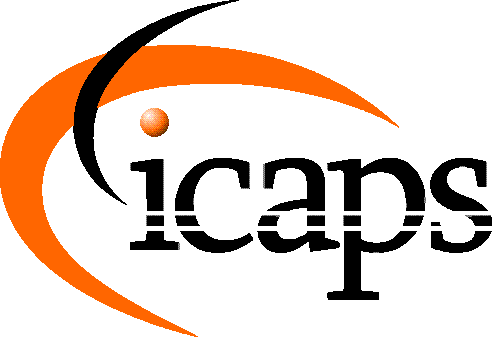

19th International Conference on
Automated Planning and Scheduling
September 19-23, 2009, Thessaloniki, Greece
https://icaps09.icaps-conference.org
Summer School
September 16-18, 2009, Thessaloniki, Greece
Hotel Makedonia Palace, Hall Amfitryon I & II
(For more and updated information, please visit the official Summer School site)
Domain-independent planning is a thriving area of research, encompassing an increasingly diverse range of techniques and approaches. Although it has been a lively area of academic research for many years, the resulting technology has only begun to scale up to problems of realistic size. As a result, interest in the planning technology is growing rapidly, creating many opportunities for industrial and commercial applications.The development of basic planning technology has made important strides forward in the recent two decades. Some new efficient approaches to AI planning have been proposed (planning as heuristic search, SAT/CSP-based planning, planning as model checking, efficient HTN planning, etc.) which have dramatically increased the scale and complexity of problem instances that can be tackled by domain-independent technology. The planning systems based on these approaches have been shown to be drastically more efficient than earlier ones, and therefore constitute a promising foundation both for large-scale industrial application, as well as for achieving some key objectives of AI research. Whilst many of these planning approaches have so far been focussed on highly restricted domain representations there have been some important recent developments in the expressive power of the domain representation languages that can be handled, allowing the modelling of time, continuous processes and resources. Much of the power of the modern planning approaches derives from their effective search algorithms and heuristics, the efficient representations of the search spaces they explore, and from the ability of some of these systems to exploit domain knowledge, either supplied by a domain expert or automatically inferred using domain analysis techniques.
The Summer School on Planning and Scheduling is an intensive three-day educational and mentoring program for graduate students and young researchers. The school will bring together subject experts in order to introduce the foundations of automated planning and the broad range of current planning approaches, and to consider ways of developing and exploiting these to make planning a realistically usable tool for complex problem-solving. Likewise, we hope the school will also provide a lively forum for attendees to discuss their research lines.
The school is aimed at PhD students and young academic researchers. For many students, especially these relatively at the beginning of the road, the summer school provides a unique opportunity to get into the field through a broad perspective on what the field is about, what are the grand challenges of the field, how it is connected to other areas of research, and how the techniques developed in the area can advance the industry. The previous summer schools on automated planning (that took place in 2000, 2002, 2003, and 2006) have been a great success. In order to ensure the success of the school, the registration will be restricted to 50 participants.
Organizers
- Carmel Domshlak, Technion, Israel
- Maria Fox, University of Strathclyde, UK
- Shlomo Zilberstein, University of Massachusetts, US